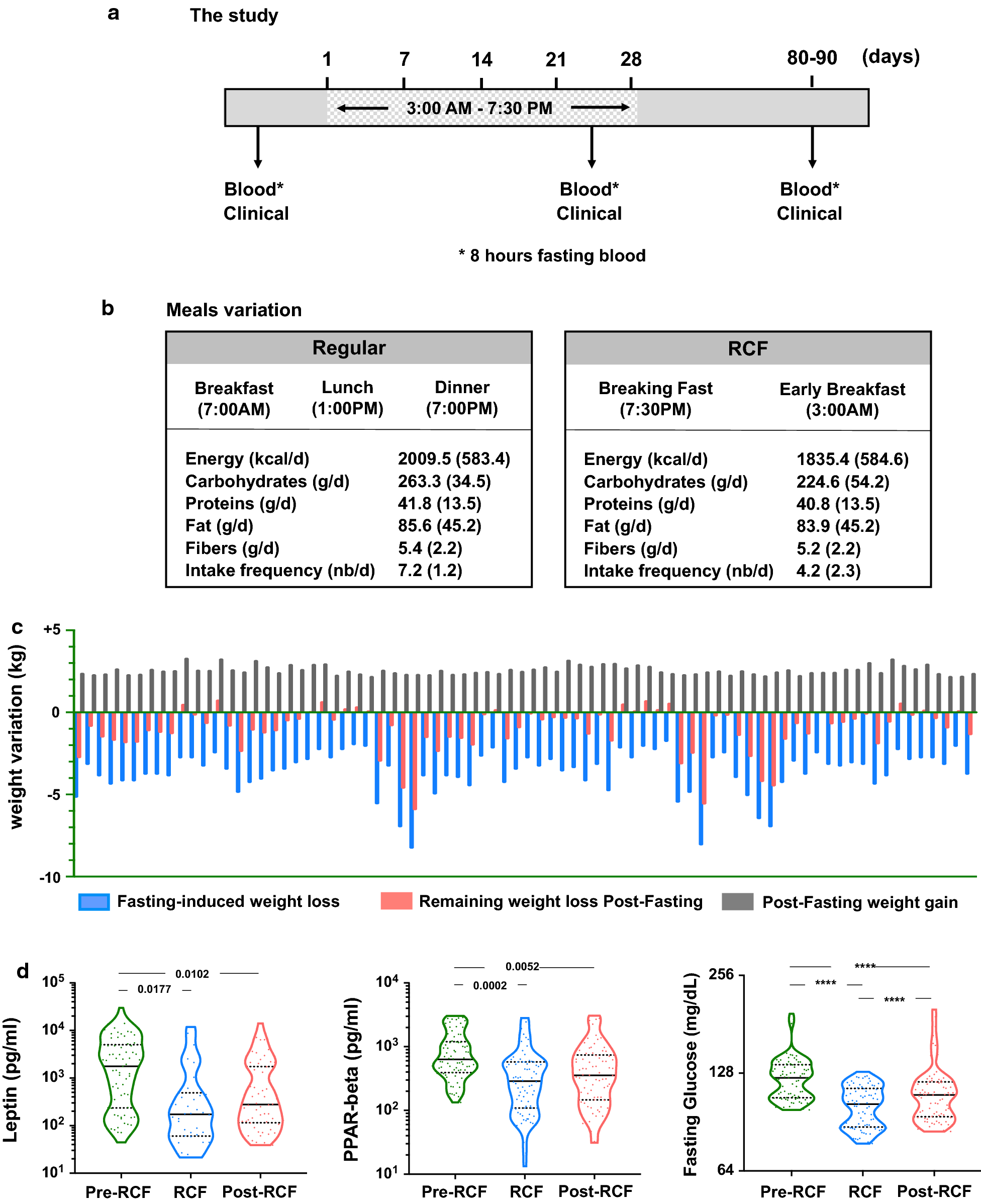.
S O U R C E : Journal of Translational Medicine
ABSTRACT
Background
The effects of fasting on health in non-human models have been widely publicised for a long time and emerging evidence support the idea that these effects can be applicable to human practice.
Methods
In an open label longitudinal follow-up, a cohort of 78 adult men (aged 20 to 85 years) who fasted for 29 consecutive days from sunrise to sunset (16 h fasting—referred to as recurrent circadian fasting) in Pakistan, were studied. The primary outcomes of the fasting study was weight loss/recovery and the associated changes in blood pressure and circulating levels of surrogate markers linked to organ and system functions—including cardiovascular, metabolic and inflammation. Post-fasting outcomes include the regulation of physiological biomarkers.

Study design and meal variations. a Study design and b main variations in meal timing and intake. c Change in absolute weight (kg) in the study population during and after fasting. d Metabolic adaptation to fasting assessed by leptin, PPAR and fasting glucose levels
Results
Recurrent circadian fasting with weight loss reduced blood pressure (140.6 vs. 124.2 mmHg) and markers of cardiovascular risk (~ 4-fold for resistin; triglycerides: p < 0.0001). Reduced glycemia (p < 0.0001) and the associated changes in the regulation of ketosis (β-hydroxybutyrate) were accompanied by a metabolic shift (PPARβ, osteoprotegerin), suggesting the involvement of the different physiological systems tested. Elevated orexin-A levels (p = 0.0183) in participants indicate sleep disturbance and circadian adaptation. All participants had CRP level < 2 mg/l during the fasting period and a similar trend was observed for TNFα. While most SASP molecules were decreased after the fasting period, heightened levels of IL-8 and IL-6 suggest that some inflammatory markers may be elevated by recurrent circadian fasting. Importantly, older adults reveal similar or more substantial benefits from fasting.
Conclusions
Recurrent circadian fasting is beneficial at the cardiometabolic and inflammatory levels, especially for at-risk individuals—this is contingent on compliance towards the recommended dietary behaviour, which controls carbohydrate and caloric intake. These benefits from fasting may be particularly beneficial to older adults as they often exhibit abnormal cardiovascular, metabolic and inflammatory signatures.
F O R T H E C O R P U S O F T H E S T U D Y , P L E A S E V I S I T T H E S O U R C E .
.















































